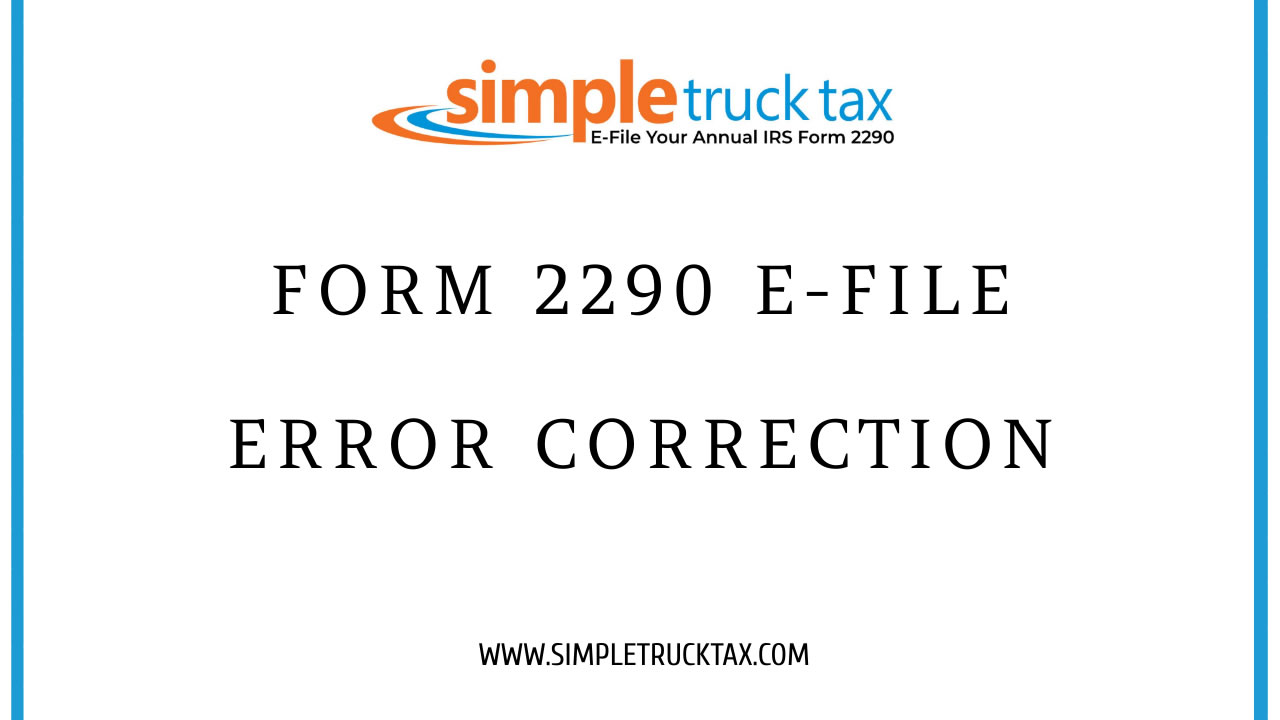
Form 2290 e-file error correction
How to Correct a Form 2290 E-File
Form 2290 e-file error correction is essential for compliance and avoiding penalties. In this guide, you will be guided through the process of correcting your Form 2290 e-file so that all necessary adjustments can be effected in time with accuracy.
Why Amend Form 2290?
There are many reasons why changes in form 2290 have to be made. They include:
- Wrong Vehicle Identification Number (VIN): When the VIN number is wrongly written, an amendment should be done.
- Changes in Taxable Gross Weight: If the weight of your vehicle goes beyond what was previously reported, you must make an amendment.
- Exceeded Mileage Limit: Cars declared as suspended initially but exceeded that mileage mark need to be amended.
Steps to Amend Form 2290 E-File
Step One: Collecting Necessary Information
These are requirements before starting on amending process;
- The original filed form 2290.
- Correct Vehicle Identification Number (VIN).
- An updated information regarding vehicle weight details
- The records of mileage if it has gone past the limit reported earlier
Step Two: Access IRS E-File System
Go to the IRS e-file system and sign in using your login credentials or create an account for yourself especially if you don’t already have one ready; however ensure you have your Employer Identification Number (EIN) at hand because this is important when accessing such.
Step Three: Go to Amendments
On logging into the system, find where amendments of forms previously filed can take place and then select form 2290 from available forms presented as well as pick out which kind of change needs to be applied.
Step Four: Enter Accurate Details
Put down all current correct information carefully; like for example enter accurate VIN when you are correcting a VIN or new weight in case of the gross weight. All aspects need to be correct to avoid further adjustments.
Step Five: Evaluate and Submit
Afterwards, go through the filled information once more; make sure all details are correct and complete before submitting your amendment. If there is an additional tax due on account of this change, it will be guided via the e-file system on how to make payments.
Step Six: Get Confirmation
IRS will confirm your submission by sending back a stamped Schedule 1 after that. Keep the document for reference purposes.
Tips for a Smooth Amendment Process
- Verify VINs: Pay attention when reviewing your work as easily preventable mistakes usually occur in this area.
- Accurate Mileage Tracking: Precise mileage records help determine whether a suspension limit has been exceeded by your vehicle or not.
- Understand Weight Classifications: Ensure that you correctly classify your vehicle’s weight to prevent future amendments and potential penalties.
Common Issues and Solutions
Issue 1: Incorrect VIN on the Original Filing
Solution: Use the amendment process to correct the VIN in order to avoid such problems with submission which include wrong entrée of data in relation with registration of your automobile.
Issue 2: Increased Vehicle Weight
Solution: Amend form so that it shows new gross weight. However, note that doing this may lead to additional tax obligations which must be discharged without delay if one is interested in avoiding any kind of fines.
Issue 3: Vehicle Exceeds Mileage Limit
Solution: In case a car once reported as suspended exceeds five thousand miles, modify the form to show these changes. Consistent mileage tractions can assist in preventing confusion thereof.
Note: For more information, visit IRS website